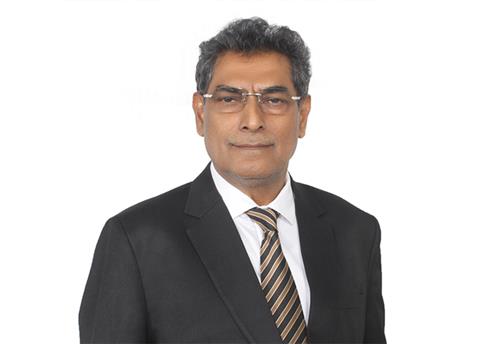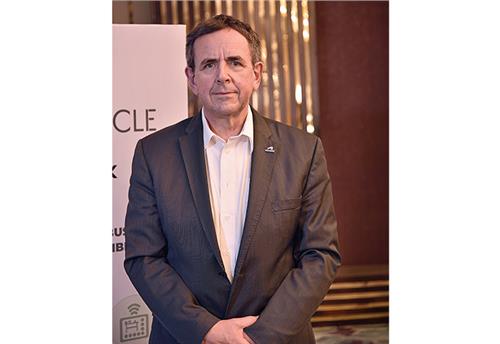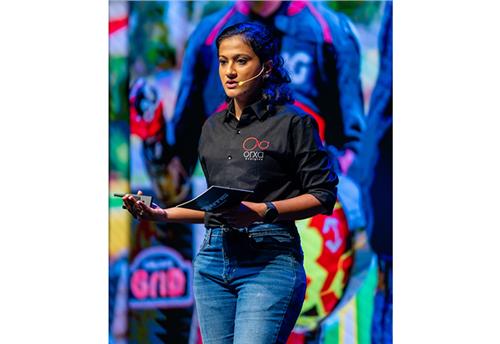'A higher rate of tax for hybrids under GST came as a surprise.'
Vikram Pawah, BMW Group India's president, speaks to Hormazd Sorabjee on the game-plan for expansion, new product strategy and on the government’s push for large-scale adoption of electric vehicles.
Vikram Pawah, BMW Group India's president, speaks to Hormazd Sorabjee on the game-plan for expansion, new product strategy and on the government’s push for large-scale adoption of electric vehicles.
You have taken over the reins of BMW at a crucial time. What is on your agenda?
With the launch of the all-new 5-series, we are putting in place a strategy for the next couple of years where we will focus on being a leader in aspects such as profitability, dealer network and customer engagement.
At present, the luxury car market accounts for less than 2 percent of the overall passenger vehicle segment. In any other developing country, it is 5-7 percent. So, there is plenty of headroom for us to expand. We led the market when we entered India and we will attain sales lead again with time. But our aim is to tap the potential within the luxury car segment. We are increasing our investment this year to Rs 1,350 crore. We also aim to expand our dealer network, not heavily but in a sustainable manner so as to ensure dealer profitability.
Tell us something about your new product strategy.
The all-new 5-series will help us expand our position in the executive sedan segment. In fact, the 5-series has been our biggest volume contributor, accounting for nearly 30 percent of our overall sales of around 66,000 units in India. We will also launch the 6-series Gran Turismo in India next year. It will be produced in Chennai and will create a new segment between the 5- and the 7-series.
Do you still feel sedans are your mainstay or do you see significant growth in SUVs?
Sports Activity Vehicles (SAVs), as we call them, are getting popular and that’s why the X1, which was launched last year, is doing very well.
Similarly, we are seeing traction with the X3 and are adding more variants to it. But sedans continue to remain popular and we are seeing a lot of demand for them from corporate executives.
Cost of ownership is an issue in the luxury vehicle segment. Is BMW doing anything to reduce it for its customers?
Our BMW 360 degree programme offers benefits such as low down payment, assured buyback and comes with a maintenance and service package to reduce cost of ownership. However, there is a slight perception that it is expensive. But the maintenance cost has to be looked at in ratio of the product cost. As long as we are keeping the maintenance cost on par with the industry level, I think it will be unfair to call ourselves as being high maintenance.
What is BMW’s take on the government’s drive for full electrification by 2030?
I think electrification of the fleet by 2030 is a fantastic idea. But in order to achieve that, charging infrastructure is the key. The bigger problem, however, will be of changing customer mindset. Getting the customer on board for electric cars will be challenging since they will fear range anxiety.
According to our experience in various countries that are going towards full electrification, a plug-in hybrid enables easier customer transition until infrastructure is gradually set up. We all know creating charging infrastructure will take time but by adopting plug-in hybrids first, people will get onto the electric mindset as they start charging their cars. When the infrastructure is fully set up, the transition can happen. So that’s why I was a bit surprised when a higher rate was levied for hybrids under GST. I would have expected plug-in hybrids to be clubbed along with electric vehicles because they are basically aiming at the same measure.
Is the inconsistency in policymaking by the Indian government a cause for concern back at the headquarters?Consistency is always the desirable thing as it lays the road for a sustained growth. Having said that, we understand India is a growing economy and I think the intentions behind some of the policy changes are right. Like, for instance, the decision to unify with the world regulations on safety and environment protection.
For a company such as ours, which produces the same cars
for India as it does for the global market, that’s fantastic. We can adopt those safety and emission technologies very easily.
Did the unpredictable change in regulations prompt BMW to have an Indian lead its India operations for the first time?
I have been asked this question plenty of times. I think whenever we are hiring talent, the focus is on the person’s experience and the requirement in the country, or in a particular market rather than
ethnicity.
Also read : BMW bullish on tapping rising luxury market potential in India
RELATED ARTICLES
BRANDED CONTENT: 'We aspire to be among the leading sensors and electro-mechanical products manufacturer'
P. Parthasarathy, Founder & Managing Director, Rotary Electronics Pvt Ltd shares the company's commitment and vision to ...
‘Big opportunity for startups lies in products in India’: Detlev Reicheneder
As electrification levels the playing field, the focus on tech and R&D to bring innovative products is the mantra for st...
'I hope my journey makes people say — I can do this too'
Ranjita Ravi, Co-founder of Orxa Energies — the maker of Mantis e-bikes — shares the challenges of building a startup an...





 05 Jul 2017
05 Jul 2017
 7332 Views
7332 Views





 Autocar Pro News Desk
Autocar Pro News Desk




